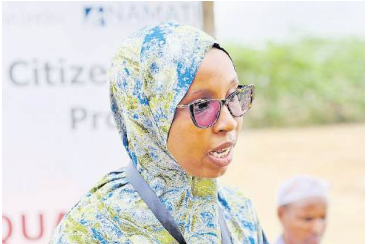

Garissa High Court has ordered the government to de-register victims of double registration from the refugee database within 60 days.
The refusal by the government to deregister individuals even after being vetted was also unconstitutional and an infringement of constitutional rights, the court further ruled.
The case was filed by Haki na Sheria, a non-governmental organisation based in Garissa.
A vetting committee should be constituted within 60 days, or if already in place, be reactivated to commence screening and vetting process, Justice John Onyiego directed.
The screening and vetting process should commence within six months from the date of delivery of the judgment, upon the expiry of which a report on the progress should be filed in court by the respondents.
Double registration occurs when Kenyans living near refugee camps, especially from host communities, are erroneously registered as refugees, making them ineligible to have national IDs.
This denies them access from vital services such as bank accounts opening, formal employment and access to premises.
Haki na Sheria Initiative, Hamdi Muhumed, Sahal Amin and Deka Gure sued the state in August 2021.
Government agencies including the Attorney General, the Cabinet Secretary for Interior and coordination, Director of Bureau of National Registration of Persons and Commission for Refugee Affairs were listed as 1st to 4th respondent, while UNHCR was listed as 5th respondent.
The petitioners said with such individuals registered as refugees, the government had failed in its duty to ensure citizens have access to and enjoy socio-economic rights.
Further, inclusion of their children’s names into the refugee database without verifying whether these individuals were foreigners was also erroneous.
Khasida Abdullahi, the programme manager at Haki na Sheria welcomed the ruling.
“We anticipate that the government will diligently work towards implementing the court judgement to ensure every Kenyan affected by the double registration is fully removed from the refugee database and issued with Kenyan identity cards within the timeline,” Abdullahi said in a statement.
The judgement was “recognition of the immense suffering that double registered people have endured over the years in their own country, effectively serving as an open prison”.
Abdullahi said the ruling was life-changing for communities in Northern Kenya, adding that her organisation will work with the communities who face discrimination in getting their citizenship rights.
Hundreds of Kenyans bear the brunt of barriers to accessing ID cards that should have been removed long ago, she said.
More than 40,000 people are registered
in the UNHCR database, most of
whom are young people who were
enlisted during their early years.











